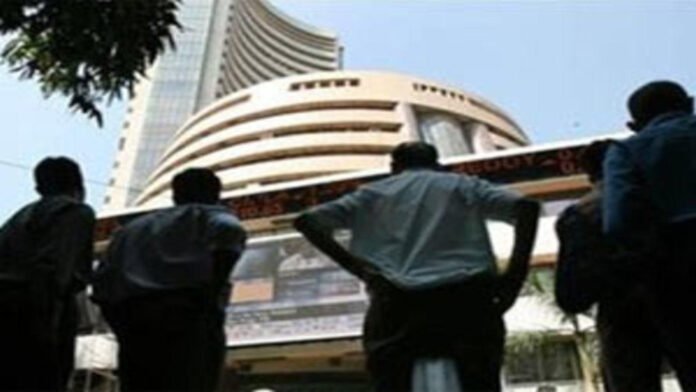Benchmark equity indices Sensex and Nifty faced significant declines on Friday, falling over 1% due to weak global cues and fresh foreign fund outflows. The NSE Nifty decreased by 292.95 points or 1.17%, ending at 24,852.15. This marked its third consecutive day of decline.
The 30-share BSE Sensex also tumbled, dropping 1,017.23 points or 1.24%, to settle at 81,183.93. At its lowest point during the day, the Sensex plunged by 1,219.23 points, or 1.48%, reaching 80,981.93.
The global market trend remained weak, contributing to the downward pressure on Indian indices. The negative sentiment in international markets and ongoing foreign fund withdrawals intensified the sell-off. Investors reacted to a mix of global uncertainties, including geopolitical tensions and economic data, which dampened market confidence.
Among the 30 companies listed on the Sensex, several key players faced substantial losses. State Bank of India, a major constituent, saw its stock plummet over 4%. Other significant decliners included NTPC, ICICI Bank, HCL Technologies, Reliance Industries, Axis Bank, and ITC. The poor performance of these stocks contributed heavily to the Sensex’s decline.
On the flip side, some companies managed to end the day with gains. Bajaj Finance, Asian Paints, JSW Steel, and Maruti were among the few that saw positive movement. Despite their gains, these stocks were not enough to counterbalance the overall negative trend in the market.
The combination of weakening global markets and the domestic sell-off highlighted the fragile state of investor sentiment. Foreign fund outflows added to the downward pressure, with investors pulling back from equities amid rising uncertainties.
The overall market atmosphere reflects a cautious outlook, with investors closely monitoring global developments and their potential impact on the Indian economy. The continuing volatility in global markets may contribute to further fluctuations in the domestic indices.
In response to the market conditions, analysts suggest that investors should adopt a cautious approach, considering both global and local factors impacting the equity markets. As global economic uncertainties persist, market participants remain vigilant for signs of stabilization or further decline.
The Sensex and Nifty’s performance underscores the ongoing challenges in the equity market, driven by a mix of global influences and domestic factors. Investors will need to stay informed and adjust their strategies accordingly as the market navigates through these turbulent times.
The market’s recent volatility underscores the challenges faced by Indian equities as they contend with external pressures and internal market dynamics. The decline in Sensex and Nifty not only reflects the current market sentiment but also highlights the broader economic uncertainties affecting investor confidence.
The global economic landscape has been marked by a series of disruptions, including trade tensions, fluctuating commodity prices, and unpredictable geopolitical events. These factors contribute to a climate of uncertainty that impacts global financial markets. Indian investors are no exception, as they react to the ripple effects of these global developments. The volatility is compounded by concerns over domestic economic indicators, including inflation, interest rates, and fiscal policies.
Market experts also point to the broader economic context in India, where recent economic data and policy announcements may influence investor sentiment. Factors such as the Reserve Bank of India’s monetary policy, fiscal discipline, and government reforms play a crucial role in shaping market expectations. As these elements evolve, they can significantly impact the direction of the equity markets.
Additionally, the performance of key sectors and corporate earnings reports influence market movements. The underperformance of major companies like State Bank of India, ICICI Bank, and Reliance Industries affects investor perception and market stability. Conversely, the resilience of companies like Bajaj Finance and Maruti showcases pockets of strength within the market, even amidst broader declines.
The current market scenario also highlights the importance of diversification and risk management for investors. As market conditions fluctuate, a diversified investment approach can help mitigate risks and capitalize on opportunities. Investors are advised to stay informed about market trends, economic indicators, and corporate performance to make well-informed decisions.
Looking ahead, market participants will closely monitor upcoming economic data, policy decisions, and global developments to gauge potential market directions. The interplay of these factors will determine the future trajectory of Indian equities and investor strategies.
The recent tumble in Sensex and Nifty reflects a complex interplay of global and domestic factors impacting investor sentiment. The current market environment necessitates a cautious and informed approach as investors navigate through these uncertain times.

